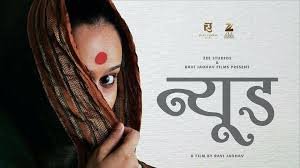The Tiz Hazari Court, Delhi vide order dated April 24, 2018 refused to grant any interim reliefs to Plaintiff ‘Manisha Kulshreshtha’ in the suit filed by her against makers of the Marathi film ‘Nude Chitra’ alleging that the film is a substantial adaptation with the same storyline, plot, form and manner of expression including the name of the protagonist as that of her Hindi story ‘Kalindi’, written by her in 2007, which was first published in the Hindi journal ‘Vartman Sahitya’ and later published in the book named ‘Gandharv Gatha’ and also translated into English and published in a collection ‘River of Flesh’.
The Plaintiff’s story “Kalindi” is based on the life of a female nude model, who poses for paintings/ drawings in art colleges for the art students and art teachers. The Plaintiff had alleged that the Defendant’s film is also based on the life of a nude model and there are fundamental and substantial similarities and/ or resemblances between the story ‘Kalindi’ and the movie ‘Nude: Chitra’. The Plaintiff had filed the suit after viewing the two minutes trailer which the defendants had released.
After hearing the parties, viewing the film, comparing the similarities and dissimilarities between the Plaintiff’s story and the Defendant’s film, the Court did not find any significant similarities or co-incidences between the Plaintiff’s works and that of the Defendants’ film. The Court observed that the similarities / co-incidences between the Plaintiff’s work and Defendants’ film were merely incidental and they are bound to be there in any work having the central theme of nude models. The Court further stated that the dissimilarities which were pointed out by the Defendants could not be overlooked and the overall plot and story line of the two works are quite different.
The Court relied on the Supreme Court’s decision in RG Anand vs M/s Delux Films & Ors while holding that mere similarities by themselves are not sufficient to raise an inference of colorable imitation. The Court found that the similarities and co-incidences claimed by the Plaintiff are clearly explainable by and referable to only the central theme idea, namely, nude modelling and which nude modelling in the prevalent societies is not acceptable to a layman; however considered from the perspective of an art student/ professor, there is nothing ignoble about it. In a story about nude modelling there are bound to be similarities here and there. Art college, art students, professors, nude/ semi nude paintings, paint brushes, colors, etc are bound to be there.
The Court thus did not find a prima facie case to have been made out by the Plaintiff or the balance of convenience to be in her favour. The Court further held that if the movie is released on its scheduled date i.e. April 27, 2018 then the Plaintiff would not suffer any irreparable loss, on the contrary if it is not released, the defendants would suffer irreparable loss.
The order records in great detail the story line of the Plaintiff’s work and the Defendant’s film, the similarities claimed by the Plaintiff and the dissimilarities provided by the Defendants. However, in view of the film being scheduled to release tomorrow, I am not providing these details in this post and accordingly not uploading the order.
The earlier posts on the first Tiz Hazari ex-parte order granting injunction and the subsequent stay on that order by the Delhi High Court, can be viewed in my posts here and here.
Whether such copyright infringement cases should claim infringement of film or underlying works of films, common mistakes made by lawyers while drafting such copyright infringement suits and related case laws on this issue shall be a subject matter of a separate guest post which would be posted in due course.
Image source: here














